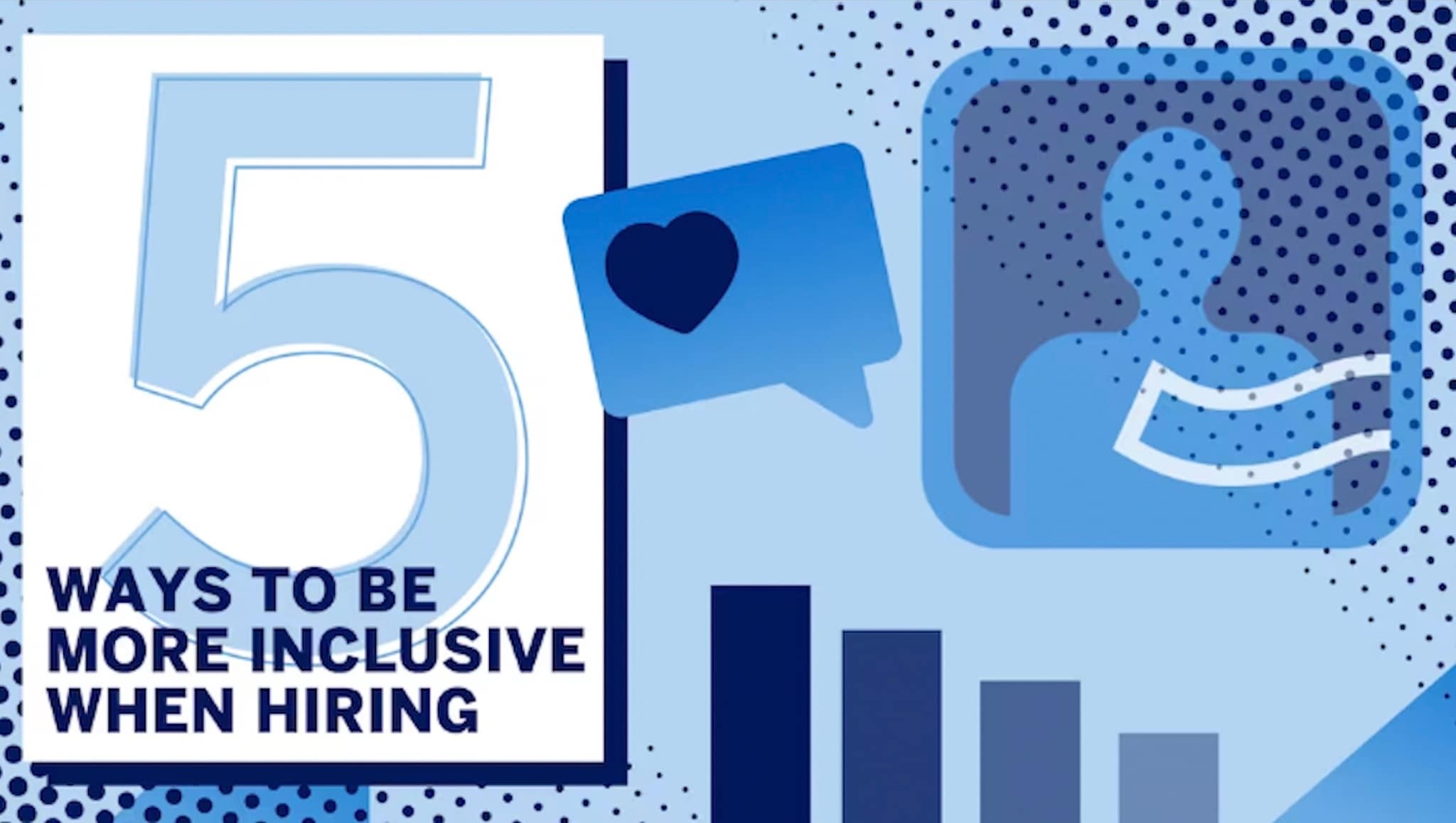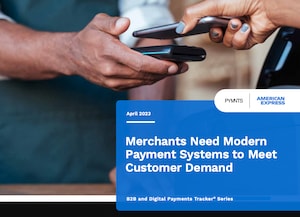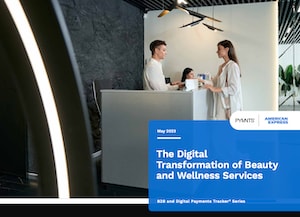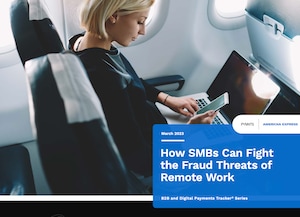March 29, 2023
5 Ways Small-Business Owners Can Make the Hiring Process More Inclusive for Disabled People

Kirstie Pickering
By hiring people with different personalities, backgrounds, and life experiences, businesses are more likely to foster deeper discussions, encourage new ideas, and grow to reach their full potential.
It’s important that this approach is inclusive of disabled people. Many SBOs are unaware of the different needs of disabled people in the hiring process. Making the process inclusive is essential, but the rise in remote hiring has created a new set of challenges.
The Need for Inclusivity
“When potential employers are inclusive in their hiring processes, it makes such a difference that it’s almost impossible to explain in words,” says Lorinda Gonzalez, founder of Grants Ink in Miami, which provides grant writing services and training.
“As a person with a disability myself, I know how my unique perspective in life gives Grants Ink an edge in our industry and has made us successful in many ways that someone without the same challenges may not have been able to achieve. By opening hiring practices to be inclusive for all – with or without disabilities – potential employers are gaining access to top talent, which is a win for everyone.”
According to the U.S. Small Business Administration (SBA), a disability is considered a physical or mental impairment that limits one or more major life activities. By investing in recruiting, hiring, and retaining talent – inclusive of people with disabilities – the SBA believes businesses can give themselves a competitive edge and demonstrate their commitment to inclusion.
"By opening hiring practices to be inclusive for all - with or without disabilities - potential employers are gaining access to top talent, which is a win for everyone."
- Lorinda Gonzalez, Founder, GRANTS INK
“It makes a big difference when potential employers are inclusive in their hiring processes,” says Maria Town, president and CEO of the American Association of People with Disabilities (AAPD).
“There are so many qualified disabled jobseekers who are often overlooked or unfairly rejected from the applicant pool just because the hiring process itself is inaccessible. Disability is a natural part of the human condition, and with the onset of the COVID-19 pandemic, millions of people are becoming disabled due to long COVID.”
5 Ways SBOs Can Make Hiring Processes More Inclusive
1. Show that your business will make accommodations.
Make sure that potential applicants and employees are informed that accommodations are available at every point in the hiring process as a matter of standard policy and practice. While not every disabled person will request accommodations, it’s important that your business can establish and be clear about this policy.
“The best way to make sure your business is providing appropriate disability accommodations during the hiring process is to ask every candidate directly if they’d like to request any accommodations during the interview and hiring process and by providing all of your access information up front,” says Town.
When scheduling an interview, communicate to every applicant that captions are available to them. If a candidate is coming to the job site in person, proactively provide information about parking, the entryway, and any food or beverages that might be offered.
“Research shows that business owners who make accommodations for employees with disabilities are more likely to retain qualified employees and report increased productivity, higher morale, and stronger profits,” says Betsy Dougert, vice president of external relations at SCORE, a U.S. network of expert business mentors and an SBA partner.
2. Ensure your physical location and internal communications are accessible.
If your business has a brick-and-mortar location, are your buildings, bathrooms, parking areas, and workspaces accessible to people with disabilities? Are the internal communication methods your business uses accessible?
If not, find out what you can do to improve accessibility so that disabled candidates and employees can fully participate in your organization's culture. There are many free or low-cost options available to help make your communication methods and platforms more accessible, such as enabling auto-captioning on video calls or using speech-to-text tools for voice messages.
“During the hiring process, employers should see inclusivity as a positive experience rather than a burden,” says Gonzalez. “Engage in open communication with candidates to ensure there are opportunities for them to share their individual needs without discomfort or negativity.
“Being flexible with interview times and locations, being open to the utilization of assistive technologies, and overall having an open mind are ways to be more inclusive.”
3. Invest in technology.
When hiring remotely, it’s important to check that the online platform you’re using is accessible. Are audio and video captions available for videos on your website, or on videos used during the hiring and onboarding process? These are small but important factors to make your business more accessible and appealing to disabled candidates.
Being mindful of using accessible technology is important once the hire has taken place, too. Both iOS and Android devices have accessibility features including screen readers and assistive touch.
Dictation tools are also available on most computers, allowing those with dyslexia to access their full vocabulary and maintain an uninterrupted workflow. Those with hearing challenges could use smartphone-compatible hearing devices, captioning for conference calls or translation into American Sign Language (ASL).
4. Project a disability-positive image.
“It’s crucial to project a disability-positive image to attract candidates with disabilities and make sure you’re getting the most qualified applicants,” says Town. “Post jobs with organizations that specialize in recruiting qualified candidates with disabilities, and work to build relationships with disability-community organizations so that your business is known as disability friendly.”
You may consider partnering with state and local groups, such as your state Vocational Rehabilitation (VR) agencies, your local Center for Independent Living (CIL), your state Developmental Disabilities Council, or your state’s Governor’s Committee on employing people with disabilities.
5. Use inclusive language in job descriptions.
Reviewing your job descriptions to remove outdated content that’s not related to the primary responsibilities of a job, as well as prioritizing inclusive language, can make the difference between someone applying for a job with your business or deciding to look elsewhere.
“Create inclusive job descriptions and make sure the job application itself is accessible to individuals with different abilities,” says Dougert. “During the interviews themselves, interview panels should consist of a diverse sampling of employees with varied perspectives and backgrounds.
“Instead of thinking, ‘Will this candidate fit in with our team?', employers should consider how a candidate’s unique strengths complement the team.”
A Positive Business Perception
Having an inclusive hiring process creates a positive impact on small businesses, both by having a diverse team of talent and for perception of the company. If a disabled person experiences barriers in a hiring process or after accepting a job, they may discourage their peers and friends from seeking employment or spending with a business.
“As a person with a disability, a lack of inclusivity to me is a poor representation of any business,” says Gonzalez. “The reality is that it’s impossible for a business to automatically know what the person with a disability needs and doesn’t need. Instead, having open communication and approaching all applicants equally would help make the process more inclusive.
“I’ve found that in situations where I’m given a safe and welcoming space to speak about my personal needs, myself and the engaging party can work together rather than against one another – which makes it a much more positive experience for all.”
Photo: Getty Images








